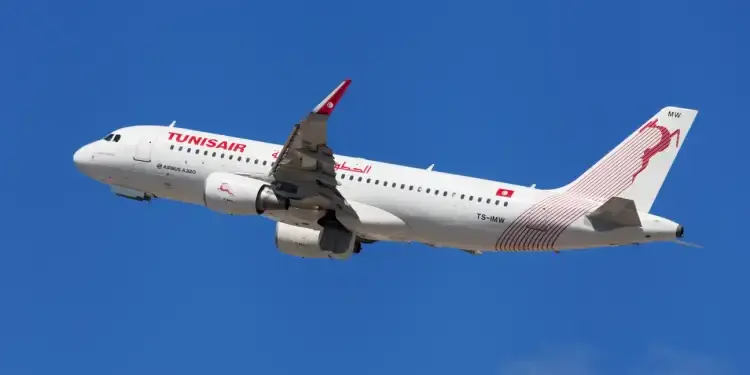While Tunisair continues to accumulate delays and criticism, the President of the Republic, Kais Saied, decided: the national company will be neither ceded nor dismantled.
Received Monday, May 12 by the Head of State, the Minister of Transport Rached Amari spoke of the situation of the national air carrier, in a context of high operational tension.
The president called for a deep restructuring of Tunisair, while reaffirming the strategic nature of the company. “Our public institutions are not for sale,” said Kais Saied, sweeping the proposals for partial privatization or public-private partnership, however regularly mentioned in economic circles.
Tunisair, now out of breath, is going through a deep and multidimensional structural crisis. Financially, the company displays cumulative debt greater than 1.3 billion dinars, aggravated by the weakness of operational profitability.
Technically, the fleet is dilapidated, with an average age of more than 15 years for several devices. Breakdowns and unavailabilitys are frequent.
Socially, tensions with unions paralyze any in -depth reform. The wage bill is considered disproportionate to the volume of activity.
In terms of governance, the company suffers from a strategic piloting deficit, accentuated by political appointments and an absence of continuity in the restructuring plans.
As it stands, Tunisair will not be able to survive without a public intervention combined with a rigorous managerial reorganization.
Tunisair, a structural crisis that lasts
2011 – Beginning of the decline: after the revolution, Tunisair enters a zone of turbulence. The increase in operating costs, the drop in tourism attendance and social instability heavily affect its performance.
2015 – Aggravated debt: the company’s debt exceeds 1,000 million dinars. A restructuring is mentioned, without leading to concrete measures. The fleet ages, strikes multiply.
2017 – First rescue plan: A recovery plan is launched: voluntary departures, partial renewal of the fleet, but it struggles to be implemented due to internal tensions and union blockages.
2020-COVID-19 shock: the pandemic hits hard. Traffic collapses, losses are widening. Tunisair remains afloat thanks to the state, but without operational recovery plan.
2023 – New calls for reform: faced with the deterioration of the service and recurring delays, criticisms are intensifying. Voices rise in favor of partial privatization or a public-private partnership.
2025 – Presidential refusal of privatization: Kais Saied opposes a firm veto to any transfer, saying that Tunisair will remain a public enterprise. It calls for structural reforms and a return to quality standards.








